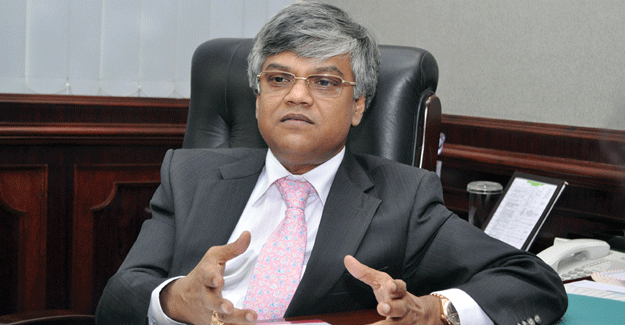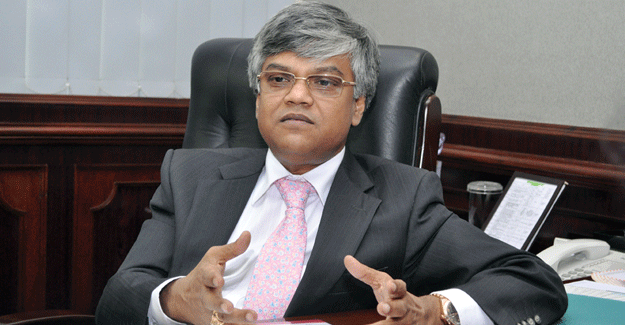
Industrial zones are the answer to the industry's demand for infrastructure
After a year of turmoil, the Bangladesh textile and apparel industry again visited the Dhaka International Textile and Garment Machinery exhibition (DTG 2014), from February 12-15. Jahangir Alamin, President, Bangladesh Textile Mills Association, in an exclusive interview with Reena Mital, spoke about the huge potential and bright future that awaits the industry, and the need for stakeholders to work in tandem, to help the growth of the industry.
How is the investment climate in the Bangladesh textile and apparel industry, after the last one year of upheaval?
Political turmoil hampered smooth working of the industry, it affected production, delivery, and resulted in a poor image for the industry. Having said that, the industry still continued to grow, and attracted investments worth Tk 220 billion. Apparel exports clocked a growth of around 20 percent. But the government has still to fulfil its duty - it has to ensure adequate supply of gas and power, infrastructure development, the Chittagong highway continues to remain a bottleneck. The government needs to seriously look at creating industrial zones, to provide the necessary infrastructure to the industry, common sourcing facilities. In the face of increased pressure to meet environmental norms, industrial zones will also help the wet processing industry, in terms of setting up common effluent treatment plants, and discharge of treated water, etc. For the growth of the wet processing industry, we want that the government allow use of surface water, underground water is depleting, and requires much more investments.
To what extent has the Roadmap to Zero Discharge group begun work on cleaning the supply chain in Bangladesh?
There are many issues involved here, a lot of clarity is needed. Something like this is not achievable n the next 5-6 years. One has to realistically evaluate the cost-benefit of zero discharge, which is very difficult to achieve. Even the developed countries took a long time to become sustainable. One has to understand what parameters have to be followed, who sets the parameters. I am in favour of cleaning up the industry, and to turn it greener, but this will happen gradually, one has to walk before one can run. I am not aware of the brands beginning work on their supply chains here to any great extent.
Textile and apparel factories here are being subject to a number of fire and building safety inspections. Is this enough to make the factories safe?
I do not see these inspections going anywhere, or helping the industry. These inspections are too focussed on a few requirements, instead of looking at the broader list of requirements. It is clear that some of the deadlines will not be met. The criteria being used for improving building safety are not practical, and do not consider the ground reality. There needs to be a more practical approach to all this. The government's policies need to be industry-friendly. Buyers have to be more responsible, even as they ask for more and more compliances, they are not ready to pay better prices. All stakeholders have to come together and approach the problems in the industry in a comprehensive manner. That is not happening.
Bangladesh T&C sector is one of the most competitive in the world, it is an unmatched sourcing destination for brands. What stops the Bangladesh industry from improving its bargaining power?
One of the important factors here is the huge size of the factories - we cannot afford to keep the factories idle for any period of time, as it will result in huge costs. We have to keep feeding the factories, and keep the machines running, the workforce employed. And buyers know this. It is this fact that also results in the debilitating practice of price undercutting. We have been suggesting the institution of benchmarking prices of yarns, fabrics and apparel, to curtail undercutting. We realise this is not quite feasible, and acceptable, and want buyers to have more ethical sourcing practices. This is the largest industry in the country, and an important one for the economy. The industry will gradually grow stronger, it has to, and that is when we will see a more organised functioning of this industry.
To what extent has the industry achieved self-sufficiency in the primary textile sector?
In spinning, I would say that local production is very good. Spinners are able to cater to almost 70-80 percent of the local demand, we have also begun exporting to Turkey, Egypt, and other countries. Some qualities of yarns are not being produced in the country, and those will continue to be imported. In knit fabrics, the country is almost self-sufficient, catering to around 80 percent of local demand. In woven fabrics, the PTS is able to cater to around 40-50 percent of the domestic demand. While the percentages remain the same, as in previous years, total volumes have increased, as the industry continues to grow.
The PTS is quite dependent on cotton. How do you see the cotton situation this year, in the backdrop of China possibly discontinuing its cotton reserve scheme?
I expect global cotton prices to remain stable this year, with ample amount of cotton available in the market. In the last few months, cotton prices moved up as some players jacked up prices, for no apparent reason. China will remain uncompetitive in the cotton and yarn market, as it holds huge stocks of high priced cotton. This would mean better business for Bangladeshi spinning mills. India and other spinners would also gain. Where do you see the future of the Bangladesh textile and garment industry? The industry will continue to grow in size and strength. The industry is here to stay, it is the second largest apparel exporter after China, one of the most cost-effective industries of the world, we use the best technologies, though we do not have the manpower to go with it, as of now. But all this is changing gradually, and this industry will help in the growth and development of Bangladesh.

Textile Excellence
If you wish to Subscribe to Textile Excellence Print Edition, kindly fill in the below form and we shall get back to you with details.












